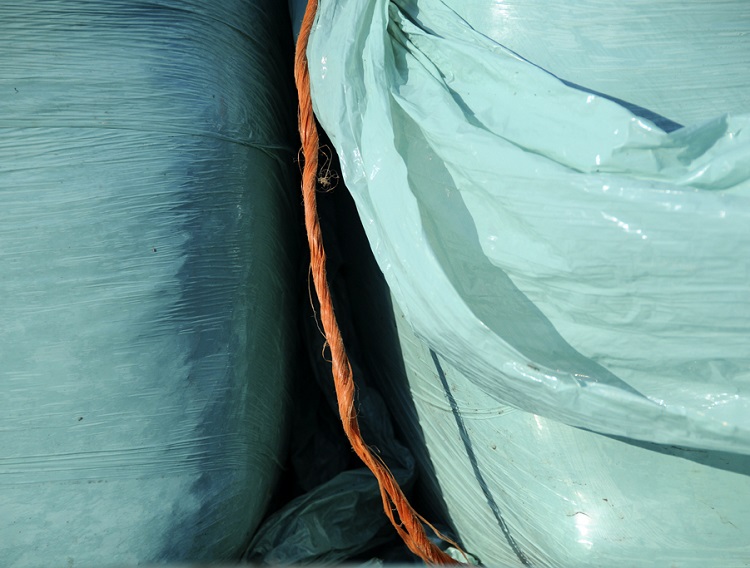In Alberta, there is no agricultural plastic recycling program.
There are two types of ag plastics which can be recycled; twine and film plastic. Film plastic includes products like silage bags, bale wrap, and grain bags. One thing to note, is net wrap cannot be recycled.
This past summer in Lacombe, Alberta Beef Producers (ABP) joined forces with commodity groups, rural municipalities, agricultural fieldmen, CleanFarms, the Recycling Council of Alberta, and the GOA Alberta Environment and Parks to form a provincial Ag Plastic Recycling Working Group.
Assar Grinde, is an Alberta Beef Producers Delegate for Zone six, and is the Chair for ABP's farm plastics working group.
Grinde says, ABP doesn't have a policy on agricultural plastics.
"Hopefully, this fall at the AGM, we'll be able to pass something, and then actually have a policy to take to the working group. We are at the very beginning stages of it."
Grinde, and other Delegates, recently discussed ag plastic recycling programs at the ABP Fall Meetings held throughout the Province. The idea was well recieved by producers.
He says, last year in Saskatchewan, they introduced a recycling program legislation which will be coming into effect in 2018. This legislation is only for grain bags.
"In Western Canada, we haven't quite got the programs up and running yet like they do in Europe. In North America, it has always been easier to burry it in landfills, or burn it."
In the UK, agricultural plastics are reused to make products like garbage bags, signage, decking, and billboards.
Grinde says, a recycling program could mean an extra five to eight percent tacked onto the total price of agricultural plastic products, but the benefits outweigh the costs.
"If there's a recycling program in place when you buy it, there's already a disposal mechanism in place for it when you purchase it, so you don't have to worry about what your going to do with it, stock pile it on the farm, or burry it, or burn it. When you buy the product, you know that it's going to be taken care of."
Another benefit will be protecting the image of the industry, Grinde says.
"With modern consumers, it's not just what the nutritional value of the product is. People are really looking at the broader picture, and the environmental practices, and animal welfare, and everything that's tied in with your product. I think ag plastic is just one of those issues we haven't dealt with yet, and it's not a good image right now for the industry."
In a survey, which 22 producers participated in, 62 percent said they burn their ag plastic, and 95 percent think plastic disposal is an issue.
The working group is still in the beginning stages, so it will take a while before producers could see an ag plastic recycling program in Alberta.
For more information, you can visit this link from the Alberta Beef Producers.
Send your news tips, story ideas and comments to jgiles@goldenwestradio.com










